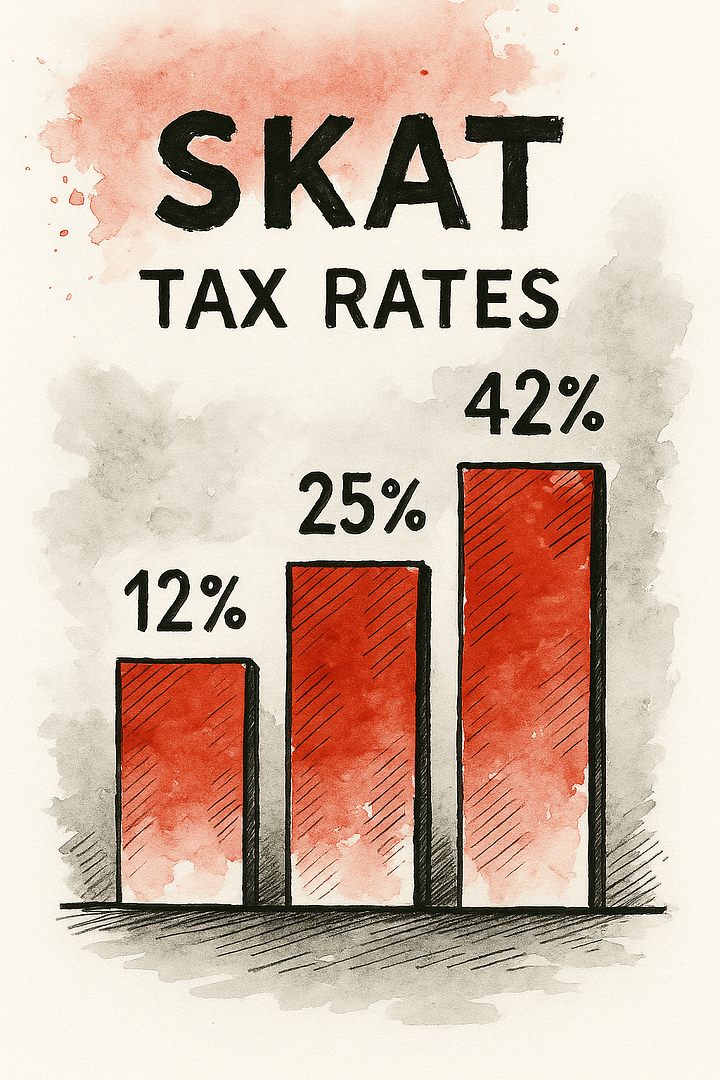Emigrating to Denmark as a British Citizen?
Whether it’s the promise of bike-friendly cities, better work-life balance, or just a quieter life away from the UK’s post-Brexit blues, Denmark has quietly emerged as a top contender for relocation among British citizens. But emigrating here in 2025 isn’t quite the same as it was five or ten years ago. While Denmark remains a welcoming and highly livable country, it’s important to understand the post-Brexit landscape, legal changes, cultural contrasts—and a few realities you won’t find in travel brochures.
Understanding the Residency Rules After Brexit
Before 2021, moving to Denmark as a Brit was relatively frictionless. Since Brexit, British citizens are now considered third-country nationals in the EU. That means you can no longer just turn up, rent a flat, and start a job.
To live and work in Denmark legally, you’ll need to apply for a residence and work permit before arrival. There are different types of permits, and which one you apply for depends on your reason for moving. The most common paths are through the Pay Limit Scheme, the Positive List for Skilled Workers, and the Fast-Track Scheme for people recruited by certified Danish companies.
You can’t legally begin work in Denmark until your permit is approved. This typically takes between one to three months. Once approved, you’ll be issued a residence card, which allows you to get a CPR number—Denmark’s all-important social ID, needed for everything from opening a bank account to visiting a doctor.
Finding Work: Promises and Pitfalls
The good news? The Danish labour market in 2025 continues to experience shortages in sectors like IT, healthcare, green tech, and engineering. If you’ve got the skills, Denmark has a job for you. The bad news? Competition is still fierce and networking—especially in person—is a big part of the hiring process.
Danish CVs are short, factual, and direct. Cover letters matter, and they’re usually read. English is widely spoken, but in many workplaces, Danish still dominates the social side. Some expats report feeling slightly out of the loop without the language, even if their job is entirely in English.
Also, be prepared for what Danes consider a flat hierarchy. Job titles mean less, and everyone is expected to chip in equally. That can be liberating—or frustrating—depending on what you’re used to.
A Tale of Two Systems: UK vs. Danish Healthcare
One of the first culture shocks for Brits moving to Denmark is how healthcare works. Yes, Denmark has universal healthcare. And yes, it’s mostly free. But it’s also very structured.
Once you’re a registered resident, you’ll receive a yellow health card with the name of your assigned GP. You can’t just turn up at any doctor’s office—you call your specific one, and often you’ll need to wait a few days for an appointment. Emergency care is excellent, but unless it’s truly urgent, you’ll be advised to wait and see your GP first.
There’s no NHS-style online pharmacy orders or endless walk-in clinics. On the upside, you won’t pay for prescriptions out of pocket after certain thresholds. And you won’t ever be presented with a surprise bill.
Cost of Living vs. Quality of Life
Denmark isn’t cheap—especially Copenhagen. Expect rent to swallow a good portion of your income, especially in the capital or Aarhus. Groceries and eating out cost more than in the UK. Alcohol is heavily taxed. A pint in a Copenhagen pub can set you back £8 or more.
However, public services more than make up for the higher prices. Public transport is reliable and extensive. Childcare, while not free, is heavily subsidised. University tuition is free for EU residents, but not for British citizens—unless you qualify for an exemption due to residency or a specific permit type.
The Denmark work market 2025 offers high wages in many sectors, but heavy taxation—up to 55%—can be a shock. The silver lining? That tax pays for the roads, your GP, your child’s daycare, and sometimes even your parental leave.
Settling In: Culture, Language, and Social Circles
Danes speak excellent English, but Danish is still essential for deeper integration. Many municipalities offer free or heavily subsidised language classes to new residents. You’ll be expected to pick it up, especially if you’re seeking permanent residency down the line.
But here’s the thing they don’t tell you in relocation guides: making friends as an expat in Denmark can take time. Danes are polite, helpful, and respectful—but not overly outgoing. Socialising happens through existing circles or shared activities. You won’t make a best mate queuing at the post office.
On the plus side, once you do make friends, Danish loyalty runs deep. And if you enjoy hobbies—sports, music, crafting, volunteering—you’ll find Danes eager to include newcomers who make the effort.
Housing: What to Expect
Renting in Denmark isn’t quite the free-for-all it can be in parts of the UK. Tenant rights are strong, but deposits are high. It’s normal to pay three months’ rent upfront as a deposit, plus three months in advance, making for a hefty start.
In Copenhagen, one-bedroom apartments start at around 9,000 DKK (~£1,000) a month, rising sharply for central or modern units. Aarhus and Odense offer slightly cheaper alternatives, but even here, housing demand outstrips supply.
If you’re planning to bring a pet, check listings carefully. Many landlords don’t allow them. Furnished places are rare, and when you do find one, expect IKEA as the standard.
EU vs. Non-EU: A Note for Dual Citizens
If you’re one of the many British citizens with EU dual nationality (Irish, German, etc.), you’ll find your path to living in Denmark significantly easier. EU citizens don’t need work permits or residence visas—they just need to register with the local authorities after arrival.
That registration still involves a few hoops—such as showing proof of employment or sufficient funds—but it’s quicker and less legally fragile than for UK-only passport holders.
If you’re considering naturalising as an EU citizen before making your move, it’s worth the paperwork. It can save you months of visa stress and hundreds in processing fees.
Graph: Average Monthly Rent vs. Average Salary (2025, Copenhagen)
| Category | Monthly Cost DKK | Monthly Cost GBP |
|---|---|---|
| One-Bedroom Rent | 9,000 | ~£1,030 |
| Utilities (avg) | 1,200 | ~£137 |
| Gross Average Salary | 45,000 | ~£5,150 |
| Net Salary After Tax | 27,000 | ~£3,090 |
Note: Exchange rate based on April 2025 estimates. Source: Statistics Denmark, Expatica, Numbeo
Final Thoughts: Is Denmark Right for You?
Moving to Denmark from the UK isn’t a whimsical leap. It requires paperwork, planning, patience—and an open mind. But for many, the rewards are more than worth it.
The high taxes pay for services that genuinely work. The quiet, walkable cities are a breath of fresh air. And the work-life balance is among the best in the world.
That said, integration takes effort. You won’t replicate your UK lifestyle one-to-one in Denmark. But if you embrace the difference, learn the language, and understand the social codes, you might just discover why so many British in Denmark 2025 say they’ll never go back.







